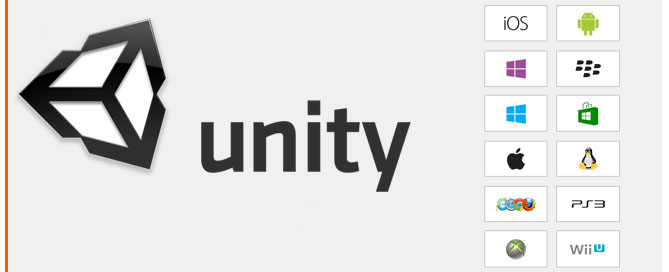Videogames Development – Unity – Array
An Array stores multiple values in a single variable.
The first array’s value is 0.
There are two types of arrays in Unity:
1- builtin arrays and normal Javascript Arrays
2- builtin arrays (native .NET arrays), are extremely fast and efficient but they can not be resized
Javascript Arrays
Assign this code to an Empty Object in the Scene:
#pragma strict
function Start()
{
}
function Update()
{
// Array Start
var mycars = new Array();
mycars[0] = "Saab"; // Notice: the first value is 0
mycars[1] = "Volvo";
mycars[2] = "BMW";
// Array End
var i= 1; // Array index
Debug.Log(mycars[i]); // The result is Volvo
}
Javascript Arrays: Print an Array Content
#pragma strict
function Start ()
{
var strings = ["First string", "Second string", "Third string"];
for(var item : String in strings)
{
print (item);
}
}
Javascript Arrays: basic use
var myArray = new Array(); // declaration
myArray.Add(anItem); // add an item to the end of the array
var thisItem = myArray[i]; // retrieve an item from position i (richiamare un contenuto dalla posizione i)
myArray.RemoveAt(i); // removes an item from position i
var howBig = myArray.length; // get the length of the Array
.NET Arrays
Syntax 1 – multiple lines
#pragma strict
// type [] name = new Array type[number of items]
int[] myIntArray = new Array int[3];
function Start ()
{
// name of array[index] = value
myIntArray[0] = 12;
myIntArray[1] = 16;
myIntArray[2] = 18;
}
Syntax 2 – one line
#pragma strict
// type [] name = new Array type[number of items]
int[] myIntArray = {12, 16, 18};
function Start ()
{
}
Public Array – you can see them in Inspector window
The code below creates an Array of Game Objects with Tag ‘Player’
#pragma strict
public var players : GameObject[];
function Start ()
{
players = GameObject.FindGameObjectsWithTag("Player");
for(var i : int = 0; i < players.Length; i++)
{
Debug.Log("Player Number "+i+" is named "+players[i].name);
}
}



